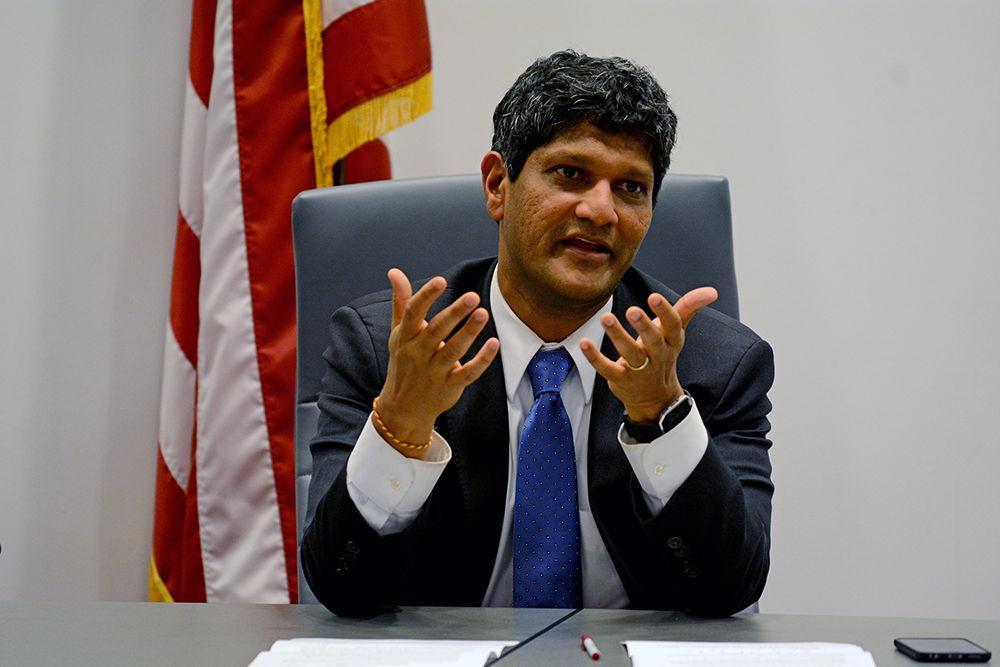North Carolina State Senator Jay Chaudhuri spoke to a small crowd of students in Talley Student Union on Tuesday evening, answering questions and discussing LGBTQ protections, redistricting and issues directly related to NC State.
“It’s an honor and privilege to represent the folks in Senate District 16,” Chaudhuri said. “I’ve opportunity to be on campus a number of times, and it’s always great to be on campus here.”
North Carolina Senate District 16 contains NC State’s campus, alongside sections of Morrisville and Durham.
“One of my great memories when I ran for senate was when I was on the ballot in March of 2016, which was the time of the Democratic primary.” Chaudhuri said. “My campaign manager sent my wife and me to the Pullen Arts Center, and we stood there from 1:00 to 7 p.m. and shook every student’s hand who was voting in the primary.”
Although proposed district maps have changed District 16 drastically, NC State still remains in the redrawn district, which will be reviewed by a panel of judges in the coming months.
“One issue that is particularly important to me is gerrymandering,” Chaudhuri said. “I’ve been a vocal advocate to set up an independent redistricting commission. There has been a lot of interest by house Republicans, but not a lot of interest by senate Republicans on that.”
Originally, Technician intended on livestreaming the event on Facebook, however Technician was told by Brian Mathis, associate director of the Center for Student Leadership, Ethics and Public Service, that Sen. Chaudhuri’s office requested that the event not be livestreamed, and reporters were not allowed to enter the room with video recording equipment.
Following the event, Sen. Chaudhuri contradicted this, stating that he would have been okay if Technician had decided to stream the event.
The son of Indian immigrants, Chaudhuri became the first Indian-American elected to the North Carolina legislature when he defeated Eric Weaver for the District 16 Senate seat in 2016. Before then, he had served in the position for several months to replace former state Sen. Josh Stein, who ran for the position of state Attorney General.
Daniel Browning, a second-year studying political science, inquired about ways to combat the lasting effects of House Bill 2, which was repealed in March.
“Gov. Cooper has taken some very good steps,” Chaudhuri said, referring to Cooper’s non-discrimination executive order signed on Oct. 18. “What we are still dealing with are the effects we have with states such as California and Texas, which don’t see the repeal as a full repeal.”
Nathan Corder, a doctoral student studying statistics, asked the senator about the possibility of creating a regulation allowing for graduate student employees to receive in-state tuition.
“One of the things that we’ve been trying to push is the affordability of being a graduate student,” Corder said. “We have had a problem that it has been up to the department to inform their students how to get in-state tuition.”
*Editor’s note: This article has been updated on Nov. 8 to correct spelling.








